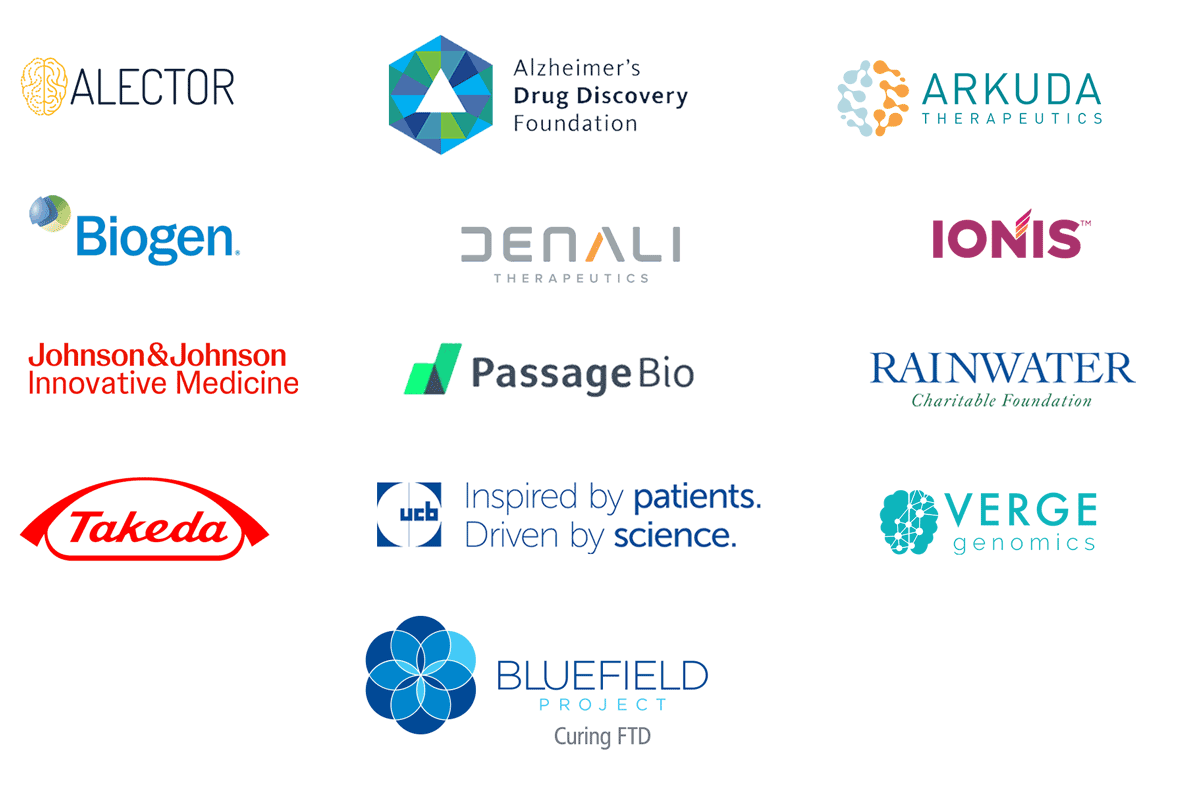FAQs
What is frontotemporal lobar degeneration (FTLD)?
FTLD is a fatal brain disease that is a common cause of neurodegeneration in people under the age of 60. FTLD is characterized by a progressive degeneration of the frontal portions of the brain, the regions responsible for language and behavior. There are currently no approved treatments or cures for FTLD.
What is inherited or genetic FTLD?
Most cases of FTLD have no known cause and occur sporadically. However, a subset of cases, approximately 20%, occur because of mutations that are passed down in families. These inherited cases are termed genetic FTLD, and the majority of genetic FTLD is caused by mutations in one of three genes: C9orf72, MAPT or GRN.
Do I need to know my mutation status to join the study?
You do not need to know if you carry a mutation yourself. The study will enroll both mutation positive individuals and mutation negative individuals.
Why is the NSP an ancillary study to ALLFTD?
NSP is an ancillary study to the NIH-funded ALLFTD natural history study (allftd.org).This means that the NSP study is associated with the ALLFTD study, but it is not part of the study. It is an ancillary study because it is research is being done with some, but not all, of the participants in the ALLFTD study. However, the data in the NSP study will be matched with the data in the ALLFTD study to help us understand the progression of FTLD.
Is there room for additional companies to fund the study and become members of the Neurofilament Surveillance Project Consortium?
Yes! We would be happy to have your company join. Email the Vice-President of Business Development, Anne Alward, anne.alward@bluefieldproject.org.
Who is funding this study?
The sponsor of this study is the Bluefield Project to Cure Frontotemporal Dementia, a nonprofit organization. The Bluefield Project has assembled a consortium of pharmaceutical and biotechnology companies and private foundations to fund this study. This consortium is called the Neurofilament Surveillance Project Consortium, or NSP Consortium.

